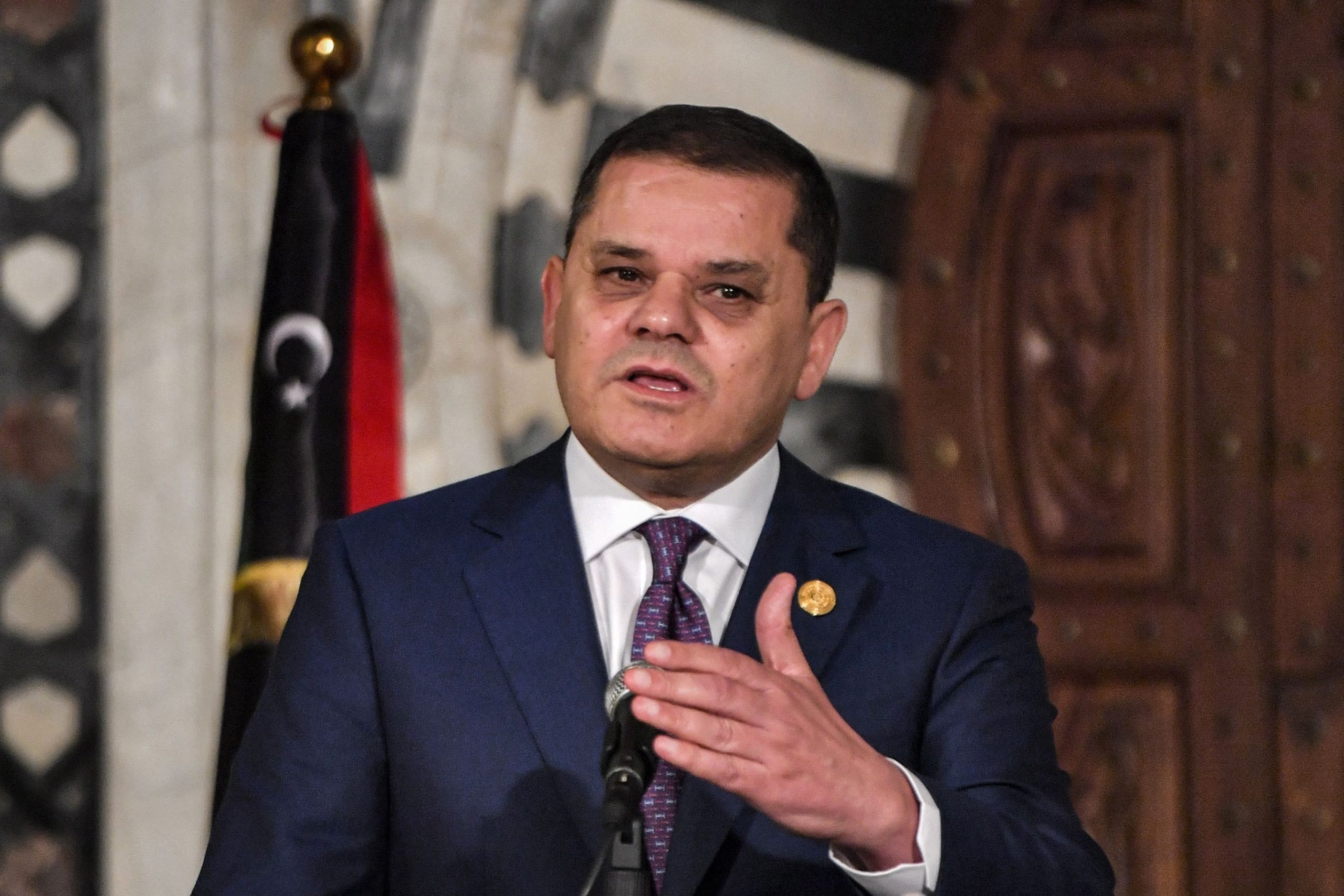Sunday evening targeted attack on the residence of Libyan Prime Minister Abdulhamid al-Dbeibah (pictured) has once again brought the fragile security situation in Libya to the forefront of international attention.
The attack, which involved rocket-propelled grenades and fortunately resulted in no casualties, serves as a stark reminder of the persistent instability and violence that have plagued the North African nation for years.
According to a Libyan minister who spoke on the condition of anonymity, the attack caused damage to the Prime Minister’s residence but no further details were disclosed.
Eyewitnesses reported hearing massive explosions in the upscale Hay Andalus neighborhood of Tripoli, where the Prime Minister’s residence is located.
Subsequently, heavy security forces were deployed to the area, underscoring the gravity of the situation.
The backdrop against which this attack occurred is one of deep-seated political divisions and power struggles that have characterized Libya since the 2011 NATO-backed uprising.
The country remains split between eastern and western factions, each with its own administration vying for control.
Despite the installation of Dbeibah’s Government of National Unity through a U.N.-backed process in 2021, the political landscape remains fraught with challenges.
The failure to hold national elections at the end of 2021 further exacerbated the political deadlock, leading to a crisis of legitimacy for the government in the eyes of the eastern parliament.
However, recent developments, including the agreement among key leaders on the formation of a new unified government to oversee elections, offer a glimmer of hope for a way forward.
Prime Minister Dbeibah’s commitment to not relinquishing power without the mandate of national elections underscores the importance of a democratic and inclusive political process in charting Libya’s future.
As the country navigates these turbulent waters, the international community must continue to support efforts towards peace, stability, and the establishment of a government that enjoys broad-based legitimacy.
The targeted attack on the Prime Minister’s residence serves as a stark reminder of the challenges that lie ahead for Libya.
It is imperative that all stakeholders, both domestic and international, work together to ensure that the aspirations of the Libyan people for peace, security, and prosperity are realized.







